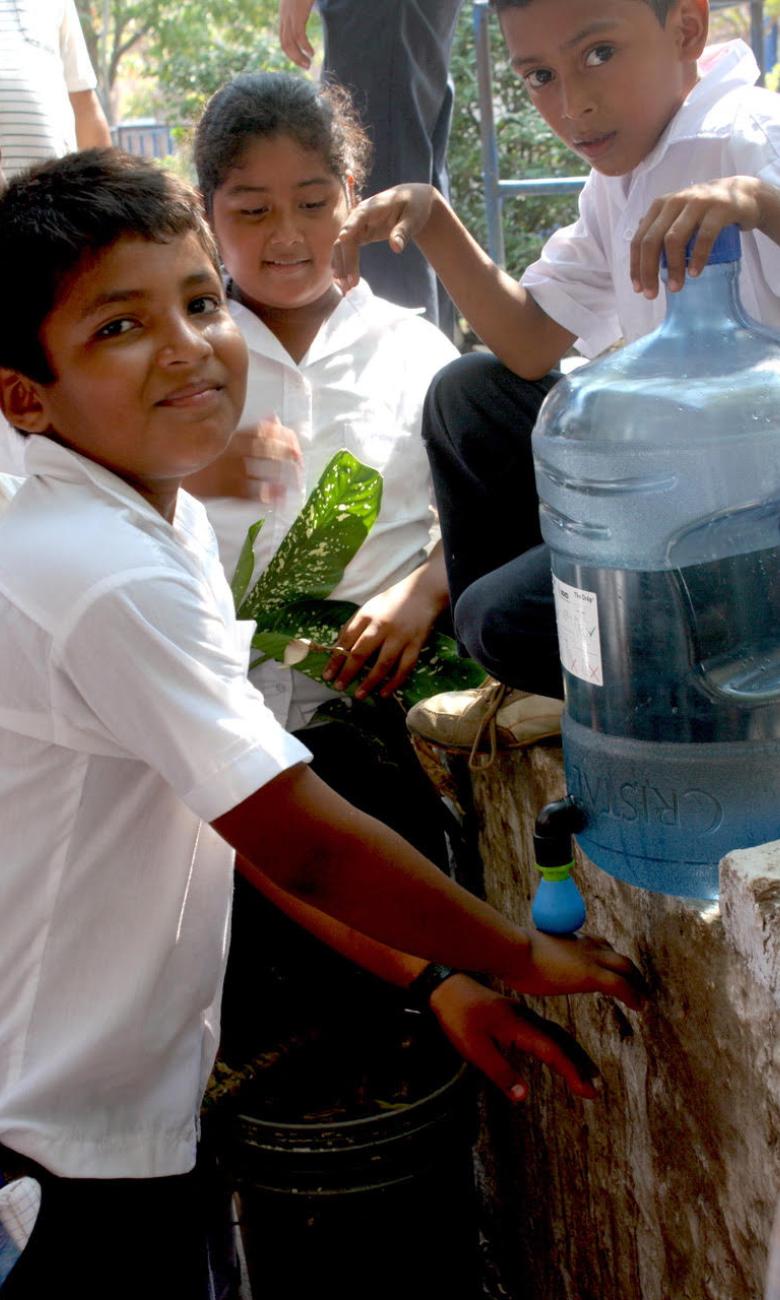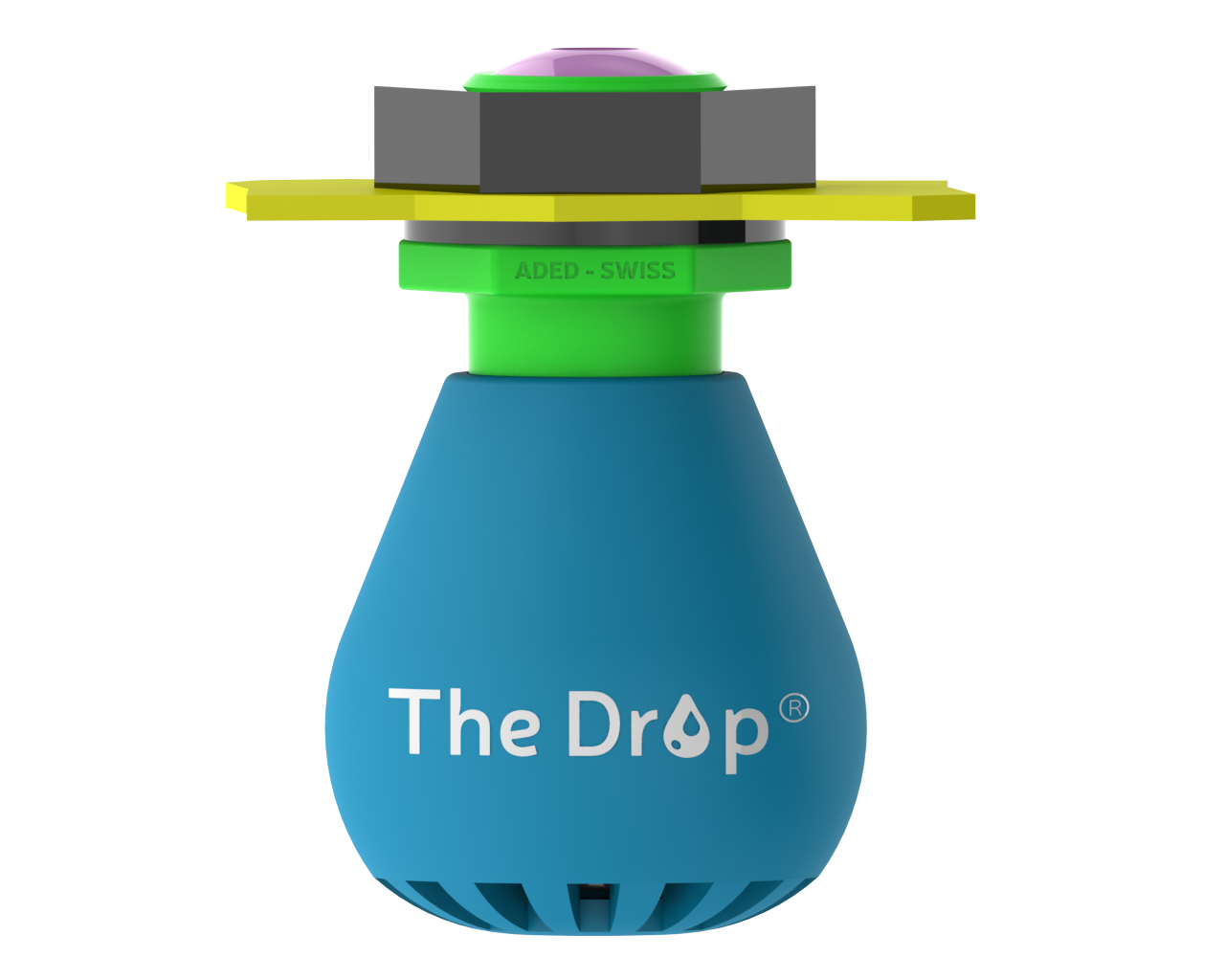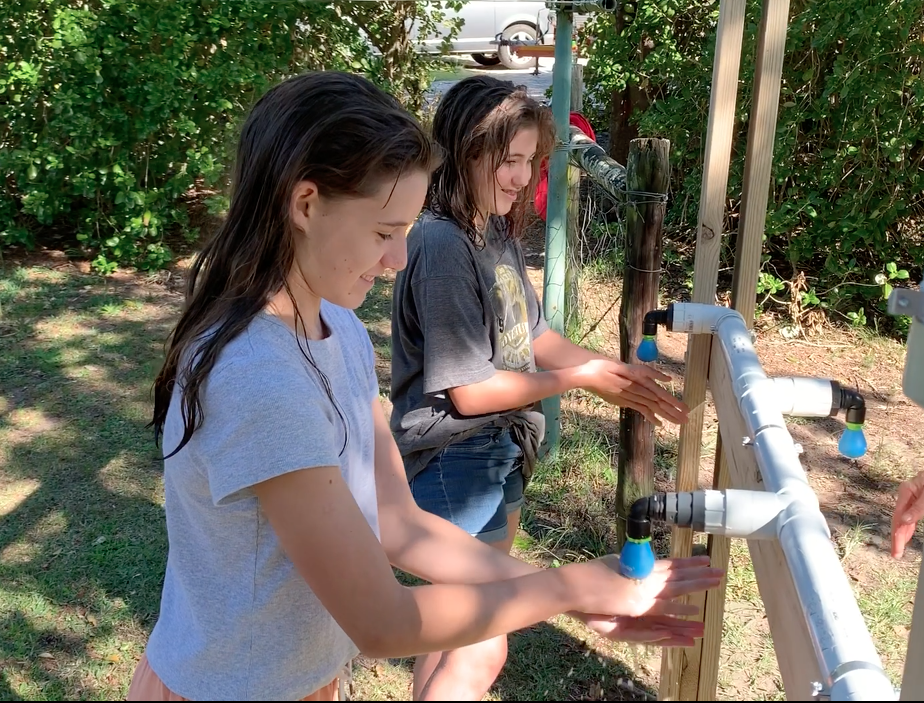The Swiss tap that saves water and lives
Good hand washing practice has come firmly into focus during the ongoing COVID-19 pandemic. Amidst the clamour for hand sanitiser and protective face coverings in Europe, it must not be forgotten that there are around 3 billion people who are not able to wash their hands at home with soap and clean water. 1.7 million children die each year due to diseases transmitted by unclean hands. Exciting Swiss innovations, such as The Drop, recently recognised on UNICEF’s May 2020 list of ‘Handwashing Stations and Supplies for the COVID-19 response’, are being developed to meet these needs.
The Drop is an eco-sanitarian tap, the main benefits of which are its hygienic and water-saving properties. Due to its pulsing motion, it requires limited contact. This means that it accumulates 40% fewer microbes than a standard tap. It also spreads the water evenly over 360 degrees and is self-cleaning, all of which saves water in the process. The result is that it uses 70% less water than a conventional tap, sparing valuable resources and costs for communities with low resources and budgets.

Switzerland has a well-earned reputation for being at the forefront of new pharmacologic and technological developments. Hydroalcoholic gel was formulated in 1976 at Fribourg Cantonal Hospital by William Griffiths and refined in 1995 by Professor Pittet at Geneva University Hospitals. This collaboration, now known as the ‘Geneva hand hygiene model’ was democratised by Pittet who gave the formula and the patent to the World Health Organization. In addition to this, the Smixin tap, which uses 90% less water than conventional taps, was invented in Biel in 2009.
Success on five continents
The Drop was devised by Patrick Houriet and is manufactured in collaboration with the Centre de Technologies Microtechniques in St-Imier to reduce costs whilst providing valuable experience for future engineers. Each device comes with a two-year guarantee and can be easily installed onto small water distribution networks, taps, jerrycans, bottles and other containers.

The Drop is a product of the Association de Développement Durable (ADED), a Geneva-based non-profit volunteer-run organisation established in 2011.
Its primary aim is to provide technical and financial support to sustainable development projects, as ADED’s spokesperson explains:
We’re looking for investors, distributors and businesses that can help The Drop become an effective product that contributes to saving lives as well as preserving water and the environment.
ADED have undertaken successful projects in Brazil, Cameroon, Ecuador, the Republic of Karakalpakstan and Senegal. Their spokesperson highlights the success of the product so far:
We’ve received extremely encouraging and positive feedback from the beneficiaries of the more than 10,000 taps we’ve installed on five continents. You can find them all over the place – in people’s homes, at schools, hospitals, restaurants, workshops, churches, mosques, camping sites and shops. Everyone appreciates the playful aspect of the Drop tap, as well as how it economises water and, of course, its contribution to hygiene. The children take to it very quickly, although you have to give clear instructions so that it’s used effectively.
Planning to meet the world’s needs
ADED are currently developing a handwashing station which incorporates this technology and could have a hugely positive impact worldwide, as their spokesperson explains:
Three billion people (40% of the global population) do not have a place at home to wash their hands with soap and water. So the potential for development is huge. We’re creating a portfolio of solutions including a handwashing station, which is connected and entirely autonomous as it can recycle used handwashing water and work in a closed circuit.
Developments such as these take on even greater importance when the increasing stress on the world’s freshwater supply is considered.
Pollution and climate change have contributed to the disappearance of more than half of the world’s wetlands and increasingly erratic weather patterns continue to cause droughts and water shortages in many areas. It is estimated that two-thirds of the global population could face water shortages by 2025.

A bacteriological and epidemiological study to validate the properties of this new handwashing station is being finalised in Senegal, and ADED are in contact with numerous NGOs and international organisations to maximise the impact of their products worldwide.




